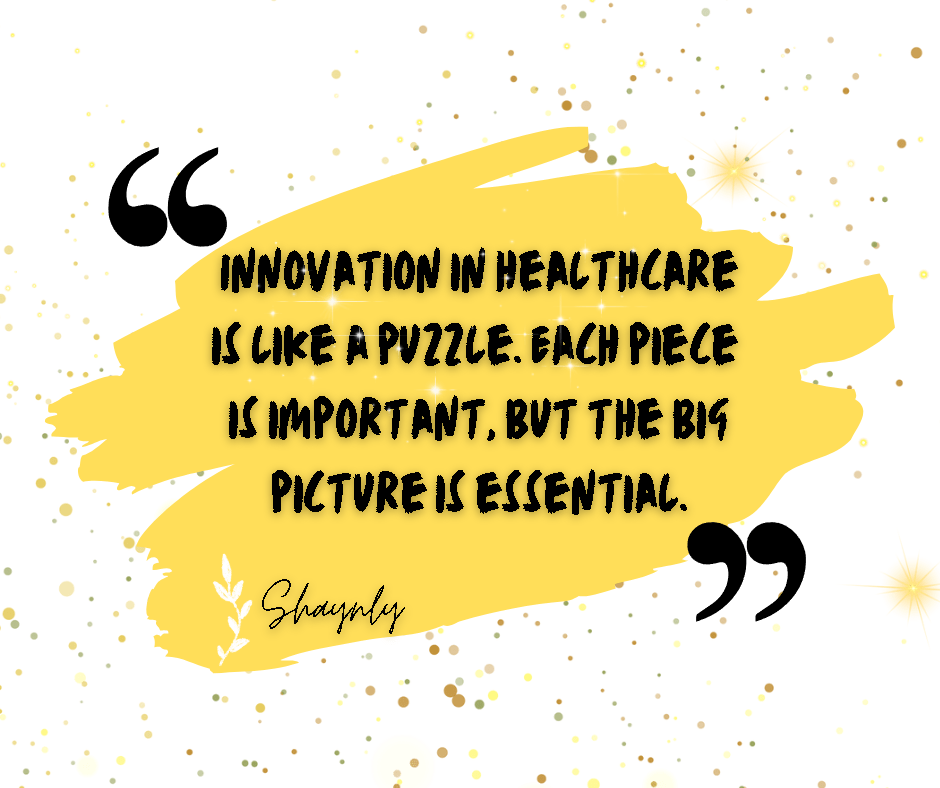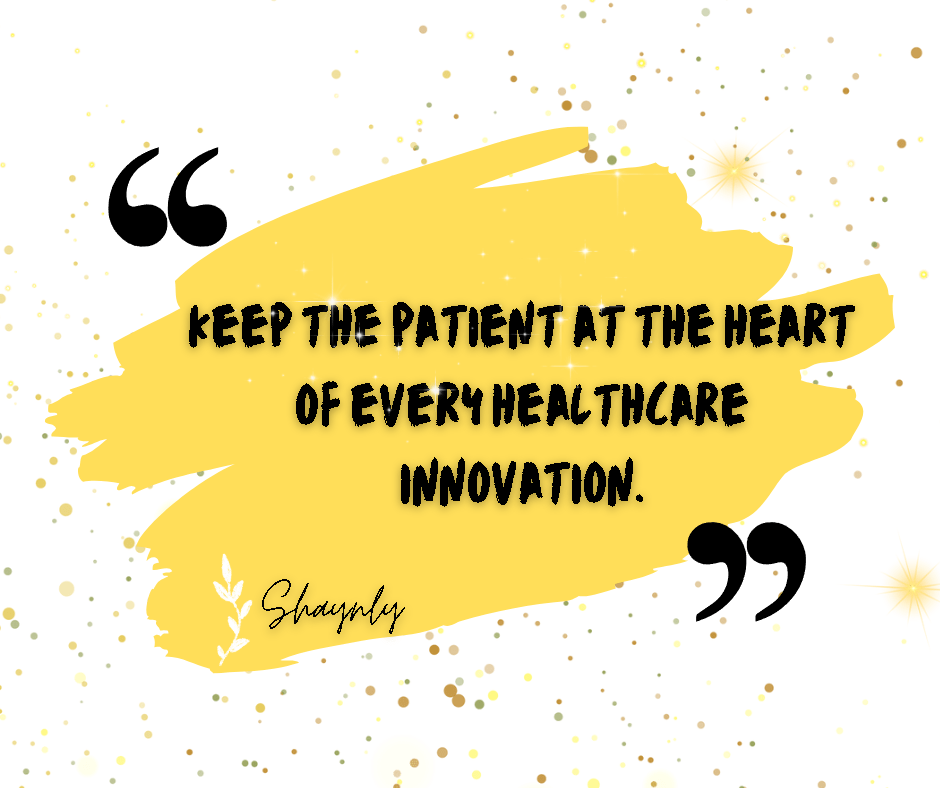The healthcare industry has seen significant advancements in recent years, leading to the development of innovative technologies and practices that have revolutionized the way medical care is delivered. From telemedicine to robotics, the impact of healthcare innovation has far-reaching effects, both in terms of improving patient outcomes and transforming the medical industry as a whole.
Keep the patient at the heart of every healthcare innovation.
The Benefits of Healthcare Innovation
Healthcare innovation has numerous benefits, including the following:
Improved Patient Outcomes
One of the most significant benefits of healthcare innovation is improved patient outcomes. The development of new treatments, medicines, and technologies has allowed medical professionals to diagnose and treat patients more effectively. For example, advancements in imaging technology have made it possible to detect diseases and conditions earlier, which can lead to better outcomes for patients. Additionally, the use of telemedicine has made it easier for patients to receive care from the comfort of their own homes, reducing the need for in-person visits and improving accessibility to healthcare services.
Increased Access to Care
Another benefit of healthcare innovation is increased access to care. With the development of telemedicine, patients can receive care from anywhere with an internet connection, reducing the need for travel and making it easier for people in remote or underserved areas to receive care. Additionally, advancements in medical devices and technologies have made it possible for patients to receive care at home, reducing the need for hospitalization and improving patient quality of life.
Reduced Costs
Healthcare innovation can also lead to reduced costs. The development of new technologies and treatments can help to reduce the cost of care, making it more affordable for patients. Additionally, the use of telemedicine can reduce the cost of travel and the need for hospitalization, further reducing the cost of care.
healthcare innovation quotes by ShaynlyThe Future of Healthcare Innovation
The future of healthcare innovation looks promising, with numerous advancements in the pipeline. From the development of new treatments and therapies to the integration of artificial intelligence and machine learning into the medical field, there is no shortage of exciting developments on the horizon.
Precision Medicine
Precision medicine is a rapidly growing field that seeks to tailor medical treatment to the unique characteristics of each patient. By using genetic information and other data to develop personalized treatment plans, precision medicine has the potential to improve patient outcomes and reduce the cost of care.
Artificial Intelligence and Machine Learning
Artificial intelligence and machine learning have the potential to revolutionize the healthcare industry. With the ability to process large amounts of data, these technologies can help medical professionals diagnose and treat patients more effectively. Additionally, machine learning algorithms can be used to predict patient outcomes, helping medical professionals make more informed decisions about treatment.
Wearable Technologies
Wearable technologies, such as fitness trackers and smartwatches, have already made a significant impact on the healthcare industry. These technologies can collect data on a patient's health, such as heart rate, sleep patterns, and physical activity, which can then be used by medical professionals to diagnose and treat conditions.
Frequently Asked Questions about Healthcare Innovation
Healthcare innovation is a rapidly growing field that has the potential to revolutionize the way medical care is delivered. With so many advancements and new technologies emerging, it's natural to have questions about the impact of healthcare innovation. In this FAQ, we answer some of the most commonly asked questions about healthcare innovation.
What is healthcare innovation?
Healthcare innovation refers to the development and implementation of new technologies, treatments, and practices that improve the delivery of medical care. Healthcare innovation can encompass a wide range of fields, from telemedicine and robotics to artificial intelligence and precision medicine.
What are some examples of healthcare innovation?
There are numerous examples of healthcare innovation, including:
- Telemedicine: the use of telecommunication and information technologies to provide healthcare services remotely
- Robotics: the use of robots to perform surgical procedures and assist with patient care
- Artificial intelligence: the use of computer algorithms and machine learning to analyze medical data and assist with diagnosis and treatment
- Wearable technologies: devices that can monitor a patient's health, such as fitness trackers and smartwatches
- Precision medicine: the development of personalized treatment plans based on a patient's genetic information and other data

How does healthcare innovation benefit patients?
Healthcare innovation can benefit patients in a variety of ways, including:
- Improved outcomes: New treatments, medicines, and technologies can help medical professionals diagnose and treat patients more effectively, leading to better outcomes.
- Increased access to care: Telemedicine and other innovations can improve access to medical care, particularly for people in remote or underserved areas.
- Reduced costs: The use of new technologies and practices can help to reduce the cost of medical care, making it more affordable for patients.
How does healthcare innovation benefit medical professionals?
Healthcare innovation can also benefit medical professionals, including:
- Improved efficiency: New technologies and practices can help medical professionals work more efficiently, allowing them to see more patients and provide better care.
- Increased accuracy: The use of artificial intelligence and other technologies can help medical professionals make more accurate diagnoses and treatment plans.
- Enhanced communication: Telemedicine and other innovations can improve communication between medical professionals, making it easier to collaborate and share information.
What are the future trends in healthcare innovation?
There are several exciting trends in healthcare innovation that are likely to shape the future of medical care, including:
- Precision medicine: The development of personalized treatment plans based on a patient's unique characteristics, such as their genetics and lifestyle.
- Artificial intelligence: The use of computer algorithms and machine learning to analyze medical data and assist with diagnosis and treatment.
- Wearable technologies: Devices that can monitor a patient's health and provide real-time feedback to medical professionals.
- Gene editing: The ability to edit a patient's genetic code to prevent or treat diseases.
- 3D printing: The ability to print customized medical devices and implants.
How can healthcare innovation be implemented in my medical practice?
There are several ways to implement healthcare innovation in a medical practice, including:
- Investing in new technologies and devices, such as telemedicine equipment or robotics.
- Training medical professionals on the use of new technologies and practices.
- Collaborating with other medical professionals and organizations to share information and expertise.
- Incorporating patient feedback and preferences into treatment plans.
Conclusion
Healthcare innovation is a dynamic field that has the potential to transform the way medical care is delivered. By embracing new technologies, practices, and treatments, medical professionals can provide better care, improve patient outcomes, and reduce costs. As the field of healthcare innovation continues to evolve, there are numerous opportunities for medical professionals to enhance the quality of care they provide.

